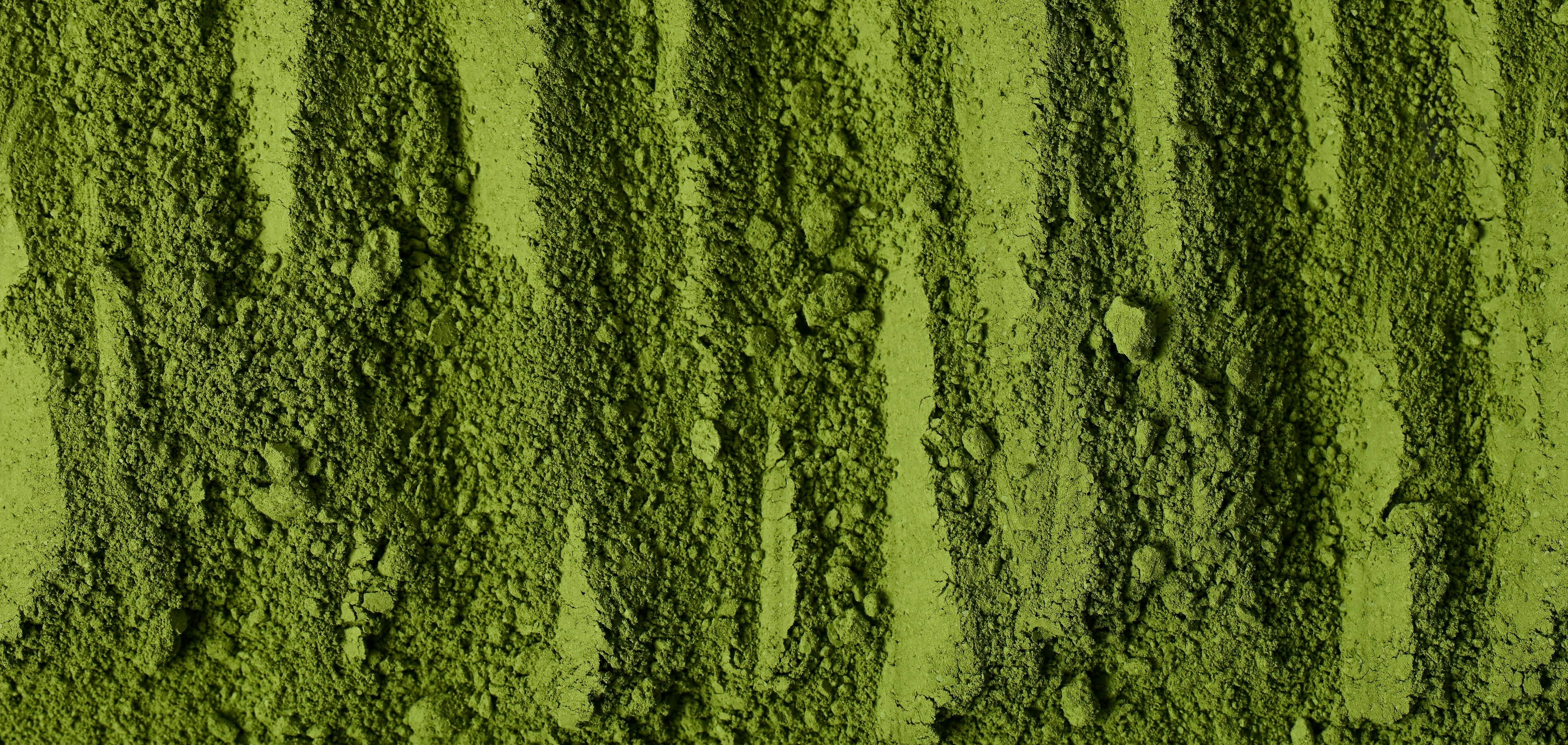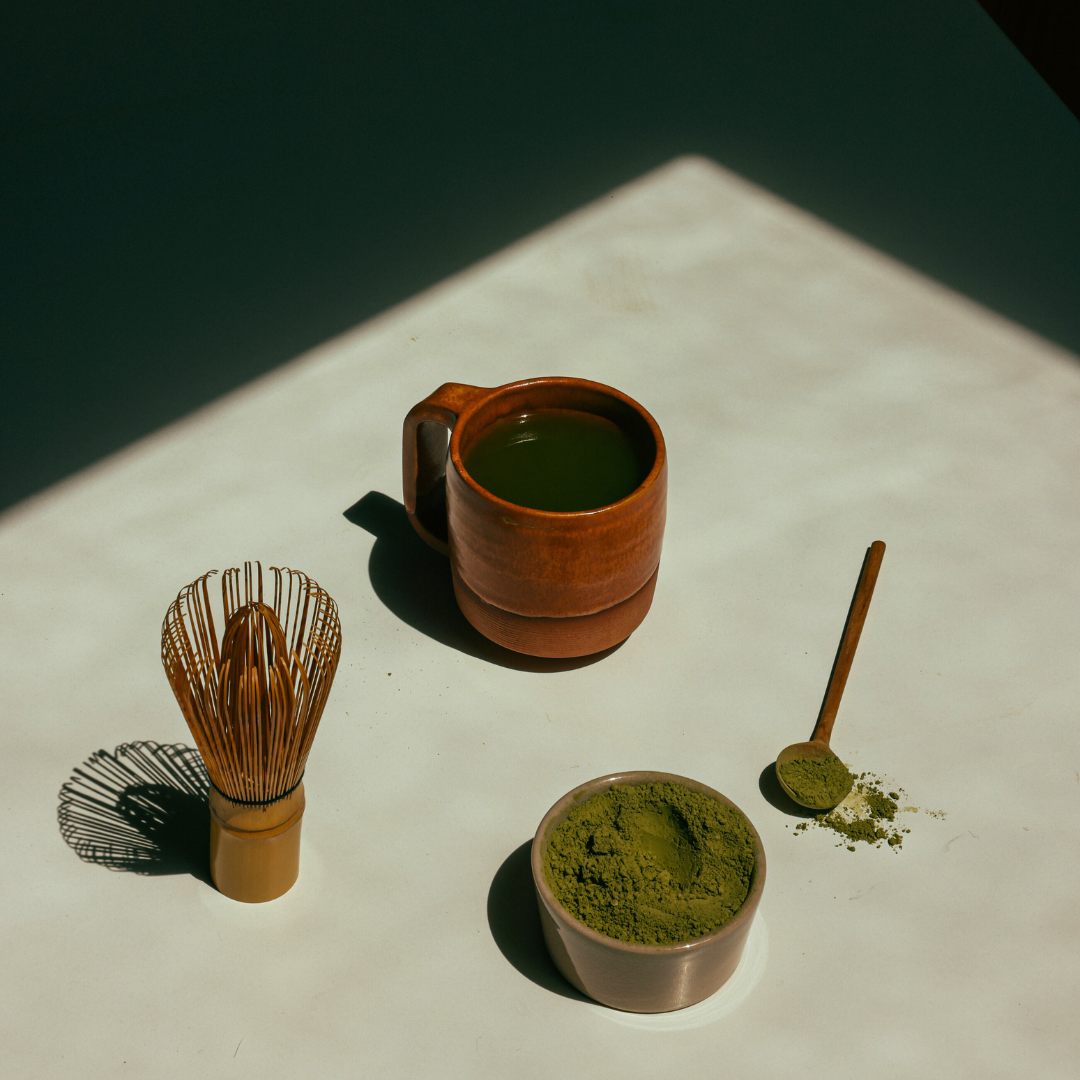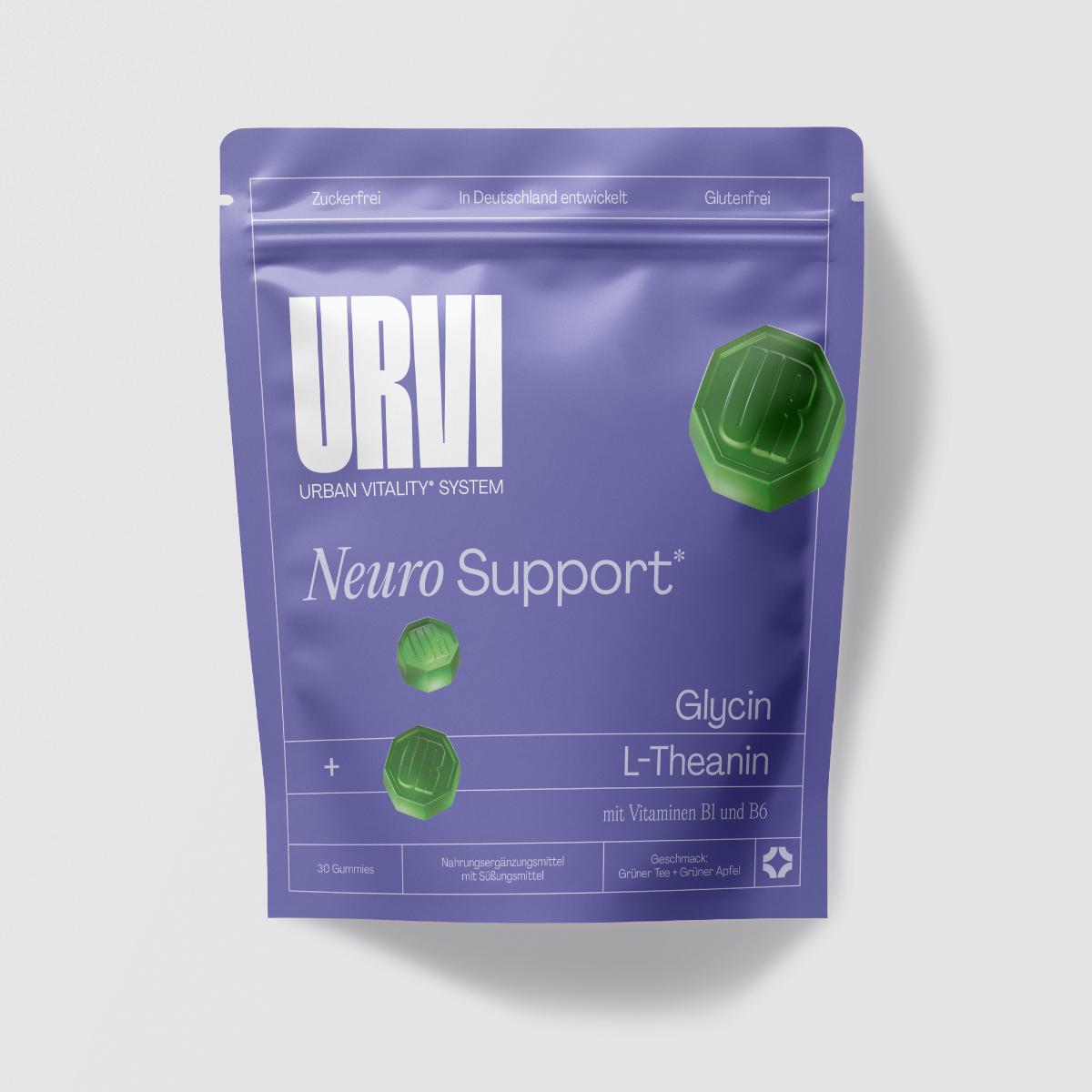Matcha combines an exceptional concentration of bioactive substances:
Of particular note is the catechin EGCG, whose powerful antioxidant effect reduces oxidative stress. Added to this is L-theanine, an amino acid that, together with the moderate caffeine content, ensures long-lasting, balanced alertness without causing nervous spikes.
Chlorophyll not only gives the green tea its intense color, but also supports the body's natural detoxification processes. Matcha also provides significant amounts of vitamins A, C, and E, as well as minerals such as potassium, calcium, and iron, so even a small serving can provide a noticeable micronutrient boost.






